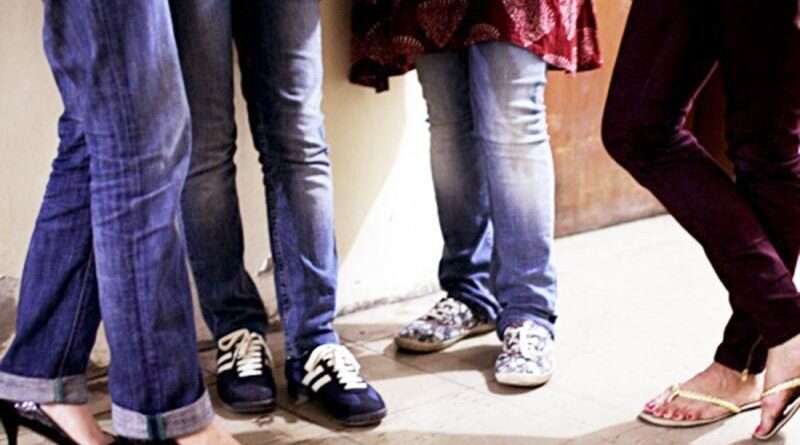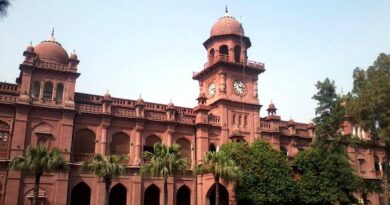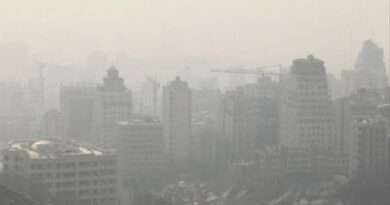Jeans, T-Shirts, and Makeup Banned for Teachers in Punjab Schools: New Dress Code Explained
|
Getting your Trinity Audio player ready...
|
The Punjab School Education Department has introduced a strict new dress code for teachers in government schools, aligning with a similar policy recently implemented in Sindh. This move aims to promote professionalism and uphold cultural values within educational institutions. The updated guidelines prohibit male teachers from wearing jeans and T-shirts, while female teachers and students face restrictions on excessive makeup, high heels, and expensive jewelry. Here’s everything you need to know about the new rules and their implications.
What Does the New Dress Code Include?
According to a notification issued by the Punjab School Education Department, the following rules now apply:
- Male Teachers: Jeans and T-shirts strictly banned. Instead, male educators expected to opt for formal attire that reflects professionalism.
- Female Teachers and Students: Excessive makeup, high heels, and costly jewelry prohibited. Female teachers required to wear shalwar kameez paired with dupattas or hijabs to maintain modesty and cultural alignment.
The department has emphasized that this dress code has not optional—strict disciplinary action will taken against violators. Private schools across Punjab have also been instructed to enforce these regulations among their staff.
Why the Change?
The new dress code is part of a broader initiative to reinforce discipline and respect for cultural norms in Punjab’s educational system. Authorities believe that teachers, as role models, should embody professionalism and modesty in their appearance. By banning casual clothing like jeans and T-shirts for men and restricting glamour-focused items for women, the policy seeks to create a uniform standard that reflects Punjab’s traditional values while maintaining a professional environment conducive to learning.
This decision follows a similar dress code enforcement in Sindh, signaling a growing trend across Pakistan to standardize teacher attire in schools.
Implications for Teachers and Schools
The dress code has sparked discussions among educators and parents alike. For teachers, compliance means rethinking their wardrobes to align with the new guidelines. Male teachers may need to invest in formal trousers and shirts, while female teachers must ensure their outfits meet the specified requirements. Schools, particularly private institutions, will need to monitor adherence closely to avoid penalties from the education department.
The policy also raises questions about enforcement consistency and the potential impact on teacher morale. While some applaud the move for promoting uniformity and discipline, others argue it limits personal expression in a profession already burdened with challenges.
Broader Context: A Cultural Shift in Education
This isn’t the first time dress codes have made headlines in Pakistan’s education sector. The Punjab School Education Department’s decision mirrors efforts in other provinces to regulate attire in schools and colleges. By prioritizing cultural values over Western-influenced fashion, authorities aim to instill a sense of identity and respect among students and staff.
The ban on jeans, T-shirts, and makeup has also seen as a response to growing concerns about the “Westernization” of educational spaces. Proponents argue that such measures preserve Punjab’s heritage, while critics question whether attire should take precedence over educational quality.
What Happens Next?
With the dress code now in effect as of April 09, 2025, the Punjab School Education Department has made it clear that compliance is non-negotiable. Teachers found violating the rules could face warnings, fines, or other disciplinary actions. Private schools, often seen as more lenient, are under pressure to align with government standards or risk scrutiny.
For those searching for clarity on Punjab’s school dress code policies, this update serves as a reminder of the region’s commitment to blending education with cultural integrity. Whether this policy will inspire similar changes nationwide remains to seen.
Final Thoughts
The ban on jeans, T-shirts, and makeup for teachers in Punjab schools marks a significant shift in how educators expected to present themselves. While the intention is to foster professionalism and cultural pride, the policy’s success will depend on its implementation and reception. What are your thoughts on this new dress code? Share your views below!




